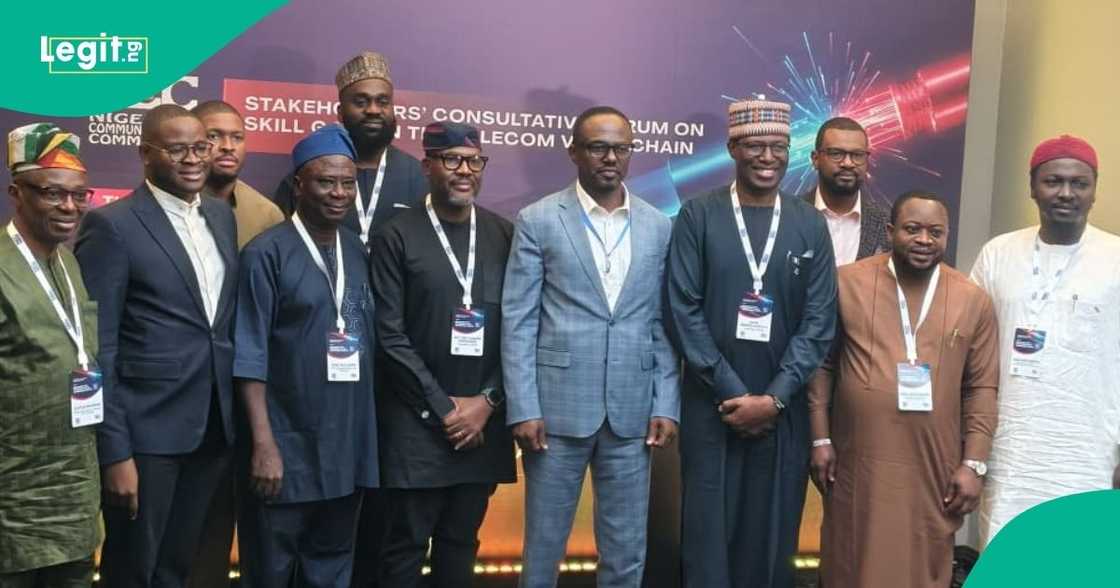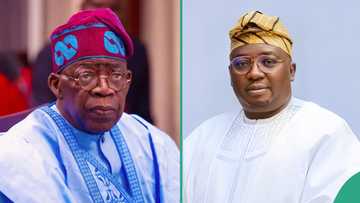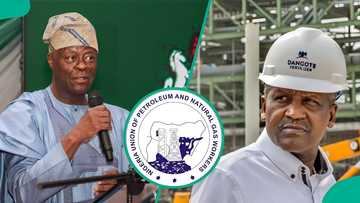Stakeholders Urge FG to Strengthen Digital Bridge Institute, Not Create New Telecom Academy
Stakeholders in Nigeria’s telecom and ICT sector have urged the Federal Government to strengthen the Digital Bridge Institute (DBI) rather than establish a new National Telecom Academy.
The call was made at the Stakeholders’ Consultative Forum on Skill Gaps in the Telecom Value Chain, organised by the Nigerian Communications Commission (NCC) in Lagos.
Themed “Bridging the Telecom Value Chain Skill Gap: Empowering Indigenous Talents for Industry Growth”, the forum brought together regulators, operators, manufacturers, academia, start-ups, and development partners.

Source: Facebook
Why strengthen DBI instead of a new academy?
Mr. Abraham Durosawo, Vice President of the Nigeria Infrastructure Fund at the Nigeria Sovereign Investment Authority (NSIA), argued that the DBI has already proven itself as a capable institution.
He stressed that expanding its mandates and attracting new investors would be a more sustainable approach than starting afresh with another academy.
“The DBI has done excellent work; we just need to strengthen it,” Durosawo said.
“The shareholders of DBI should be expanded. Let’s bring in long-term investors who have the capital and genuine interest in the industry.”
Durosawo firmly rejected the proposal for a National Telecom Academy, insisting that reinforcing the DBI would deliver faster results in closing Nigeria’s widening telecom skill gaps.
Industry leaders echo concerns over skill shortages
Other prominent voices at the forum included Tony Izuagbe Emoekpere, President of the Association of Telecommunications Companies of Nigeria (ATCON); Gbenga Adebayo, Chairman of the Association of Licensed Telecom Operators of Nigeria (ALTON); and Edoyemi Ogoh, Director of Technical Standards at NCC, who represented the Commission’s Executive Vice Chairman, Dr. Aminu Maida.
They all agreed that Nigeria’s digital economy faces a serious shortage of skilled professionals in areas such as:
- RF engineering
- Fiber planning
- Cybersecurity
- Data centre operations
- Project management
ATCON’s Emoekpere noted that the shortage remains one of the most pressing challenges in the sector.
Retention is as important as training
ALTON’s Adebayo emphasised the need for practical, mid-level skill training integrated into DBI’s curriculum.
He proposed that telecom operators should sponsor DBI campuses, offer scholarships, create certification programs, and build clear job pathways.
“In four years, I lost 12 skilled technicians to Canada, Germany, the U.S., and the UK,” Adebayo revealed.
“It’s not just about training people, but retaining them with better incentives and social guarantees.”
This, he said, is critical for Nigeria to stem the brain drain that continues to deplete its telecom workforce.
Closing Nigeria’s telecom skill gaps
Stakeholders concluded that addressing skill shortages is vital for sustaining Nigeria’s telecom growth, reducing reliance on foreign expertise, and ensuring competitiveness in the global digital economy.
By reforming and strengthening DBI—through better funding, wider mandates, and investor participation—the government can create a robust pipeline of local talent equipped to drive the sector forward.

Source: UGC
As Nigeria positions itself in the global digital race, industry leaders insist the answer is not building new institutions but empowering existing ones to deliver at scale.
FG removes 5% telecom tax on voice, data services
Legit.ng earlier reported that the Federal Government has revoked the 5% excise tax previously imposed on telecommunications services in Nigeria, a move expected to ease cost pressures for millions of mobile users.
The National Orientation Agency announced this in a post on its official X handle on Thursday, September 11.
The tax, which was intended to apply to both voice calls and data, had drawn widespread criticism from industry players and consumer advocates since its introduction under the Muhammadu Buhari administration.
Source: Legit.ng




